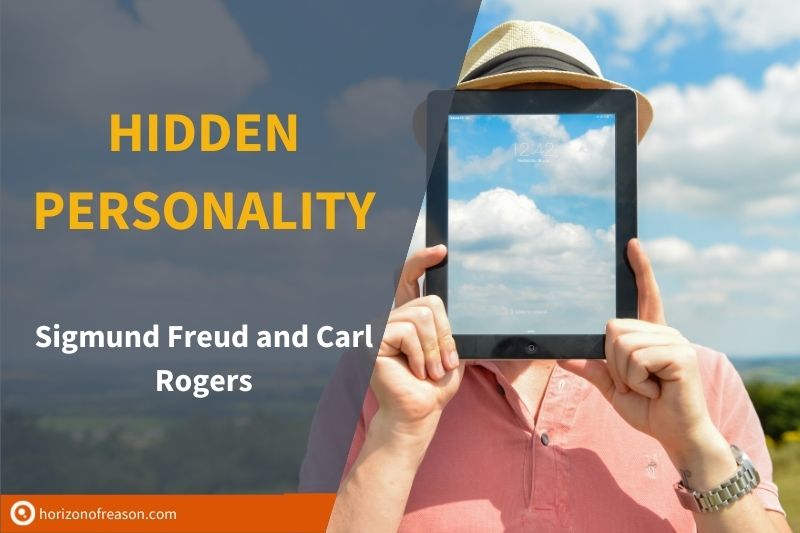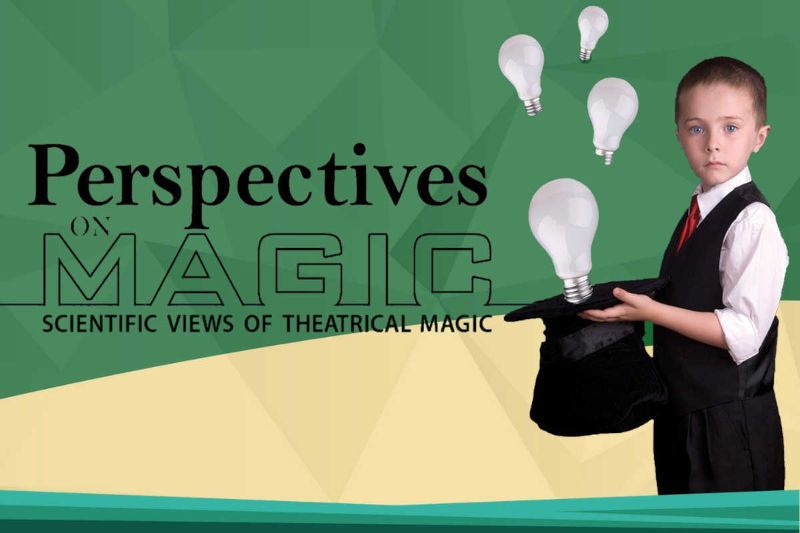
Hidden Personality according to Sigmund Freud and Carl Rogers

Peter Prevos |
1636 words | 8 minutes
Share this content
Personality is a complex phenomenon in psychology. Sigmund Freud (1856–1939) and Carl Rogers (1905–1987) are widely recognised as two of the most influential psychotherapists of the twentieth century. Both theorised that people have a hidden personality of which they are not aware of. Although both theories are developed through years of clinical experience, they are based on very different assumptions. In this essay, these assumptions on hidden personality will be discussed, and it is argued that Rogers’ theory is to be preferred over the Freudian model because it is more in tune with findings of contemporary scientific research.
Sigmund Freud
The basic assumption of Freud’s psychoanalytic view of the person is an energy system in which all mental processes are considered to be energy flows, which can flow freely or can get sidetracked or dammed up. Freud argues that the goal of all behaviour is the reduction of tension through the release of energy, which produces pleasure. People function by hedonistic principles, seeking unbridled gratification of all desires. The endless pursuit of happiness is, however, in conflict with society and civilisation, as the uncontrolled satisfaction of pleasure is not accepted. In Freud’s view, humans are primarily driven by sexual and aggressive instincts. Sexual and aggressive energy prevented from expression more directly is converted to cultural activities such as art and science. Energy used for cultural purposes is, however, no longer available to sexual purposes and Freud concludes that the price of civilisation is misery, the forfeit of happiness and a sense of guilt (Pervin 1997).

Freud’s theory of personality is based on the idea that much of human behaviour is determined by forces outside awareness. The relation between the person and society is controlled by primitive urges buried deep within ourselves, forming the basis of the hidden self. Freud argues that much of our psychic energy is devoted either to finding acceptable expressions of unconscious ideas or to keeping them unconscious. Freud constructed his concept of the unconscious from analysis of slips of the tongue, dreams, neuroses, psychoses, works of art and rituals (Pervin 1997). In psychoanalytic theory, mental life is divided into three levels of awareness. The most considerable portion of the mind is formed by the unconscious-system and only a tiny part by the conscious. The preconscious-system stands like a partition screen between the unconscious-system and consciousness. (Ekstrom, 2004). The conscious mind is like the tip of an iceberg, with its most significant part—the unconscious—submerged. Psychoanalytic theory is fundamentally a motivational theory of human behaviour. Freud claimed that “psychoanalysis aims at and achieves nothing more than the discovery of the unconscious in mental life” (Cited in Pervin 1997: 71).
Carl Rogers
Humanist psychologist Carl Rogers opposed psychoanalytic personality theory. He was dissatisfied with the ‘dehumanising nature’ of this school of thought (Pervin 1997). The central tenet of humanistic psychology is that people have drives that lead them to engage in activities resulting in personal satisfaction and a contribution to society: the actualising tendency. This tendency is present in all organisms and can be defined as the motivation present in every life form to develop its potentials to the fullest extent. Humanistic psychology is based on an optimistic view of human nature, and the direction of people’s movement is basically towards self-actualisation. Some might criticise Rogers as being a naive optimist and point out the violent history of humanity. Rogers defends his view by referring to the fact that his theory is based on more than twenty-five years of experience in psychotherapy (Pervin 1997).

A person’s identity is formed through a series of personal experiences. These experiences reflect how the individual is perceived by both him or herself and the outside world—the phenomenological field. Individuals also have experiences of which they are unaware, and the phenomenological field contains both conscious and unconscious perceptions. The concept of the self is, according to Rogers, however, primarily conscious. The most important determinants of behaviour are the one’s that are conscious or are capable of becoming aware. Roger argues that a definition of the self that includes a reference to the unconscious (as with Freud) can not be objectively studied as it can not be directly known (Pervin 1997).
Rogerian personality theory distinguishes between two personalities. The real self is created through the actualising tendency, it is the self that one can become. The demands of society, however, do not always support the actualising tendency, and we are forced to live under conditions that are out of step with our preferences. The ideal self is the ideal created through the demands of society. Rogers does not see it as something to strive form (that is the real self) but a standard imposed on us we can never fully reach (Boeree 1998). Rogers’ view of ‘hidden’ personality relates to the person one could be given the right circumstances within society and for an individual to be truly happy (and for self-actualisation to be realised) their public and private selves must be as similar as possible. For an individual to be truly happy and for self-actualisation to be realised, the public and hidden selves must be as identical as possible. Rogers believed that when all aspects of a person’s life, surroundings and thoughts are in harmony and thus, the ideal state of congruence is reached (Pervin 1997).
Foundations of Personality
Freud and Roger’s theories of personality are based on some very different assumptions. Their concept of human nature and the role of rationality in human motivation are diametrically opposed. Although both theories include a hidden personality, both concepts are very different in that for Freud, it is our natural state. At the same time, for Rogers, it is the self, created by the demands of society.
Human Nature
Freud theorised that people have an unconscious mind that would, if permitted, manifest itself in incest, murder and other activities which are considered crimes in contemporary society. Freud believes that neuroticism is a result of tensions caused by suppression of our unconscious drives, which are fundamentally aggressive towards others (Pervin 1997).
Rogers agrees that we may behave aggressive and violent at times, but at such times we are neurotic and are not functioning as fully developed human beings (Pervin 1997). Rogers reverses Freud’s concept of neuroticism and thinks that what Freud has construed as our natural state of being is actually unnatural and unhealthy behaviour. For Rogers, the core of our nature is essentially positive and aligned towards self-actualisation, while for Freud, we solely are driven by sexual and aggressive instincts. Recent research support Rogers’ point of view as it has shown that people with an optimistic style of thought tend to cope more effectively with stress than do people who have a pessimistic tone (Gray 2002).
Reason in Human Behaviour
Revolutions in the history of science have one common feature: they deconstruct our convictions about our own self-importance. Copernicus moved our home from centre of the universe to its periphery, Darwin relegated us to descent from an animal world, and Freud discovered the unconscious and deconstructed the myth of an entirely rational mind (Ekstrom 2004). In Freud’s view, human beings are basically irrational, and the unconscious mind is a-logical. We are forever driven by irrational, practically uncontrollable unconscious instincts that are the ultimate cause of all activity (Pervin 1997).
Rogers sees human beings as basically rational, and behaviour is controlled through reason. Rationality and the actualising tendency are inseparably connected in Rogers’ image of personality (Ziegler 2002). Human behaviour is, according to Rogers: “exquisitely rational, moving with subtle and ordered complexity toward the goals the organism is endeavouring to achieve” (Cited in Ziegler 2002: 82). The natural course of the actualising tendency is, however, often blocked by psychosocial conditions. When this happens, people become estranged from their true nature and may behave irrationally through anti-social and destructive behaviour.
Hidden Personality
The Freudian concept of the unconscious mind was never experimentally verified by him and remained a theoretical construct. Critical questions about what is available to immediate observation and what occurs unconsciously could never be fully answered by Freud as he did not possess any of the current day technological possibilities. Through contemporary cognitive science, it has been discovered that most of our thought actually is unconscious, not in the Freudian sense of being repressed, but in the sense that it operates beneath the level of cognitive awareness, inaccessible to consciousness and operating too fast to focus on (Ekstrom 2004).
Unconscious processing goes on in the mind of humans, not because we have to filter out threatening stimuli and impulses, but because many cognitive operations go on without conscious participation. The brain operates in this way in order not to flood the conscious part of the mind with impressions. The unconscious is a type of process, a form of constructing perception, memories and other kinds of cognition, not a portion of the mind (Ekstrom 2004). This view agrees with Roger’s concept of the unconscious, who theorised that the unconscious is only a part of the phenomenological field and does not control our personality.
Conclusion
Both Freud’s and Rogers’ theories of personality are based on some fundamental assumptions and occupy opposite ends of the spectrum of views on human motivation. When comparing both approaches with contemporary research in cognitive psychology, Rogers’ personality is to be preferred over the Freudian model.
References
- Boeree, C. G. (1998). Personality theories: Carl Rogers.
- Ekstrom, S. R. (2004). The mind beyond our immediate awareness: Freudian, Jungian and cognitive models of the unconscious. Journal of Analytical Psychology, 49, 657–682.
- Gray, P. (2002). Psychology (4 ed.). New York: Worth Publishers.
- Pervin, L., & Oliver, O., 1997). Personality: Theory and research (7th ed.). New York: John Wiley.
- Ziegler, D. J. (2002). Freud, Rogers and Ellis: A comparative theoretical analysis. Journal of Rational-Emotive & Cognitive Behaviour Therapy, 20(2), 75–91.
Share this content


